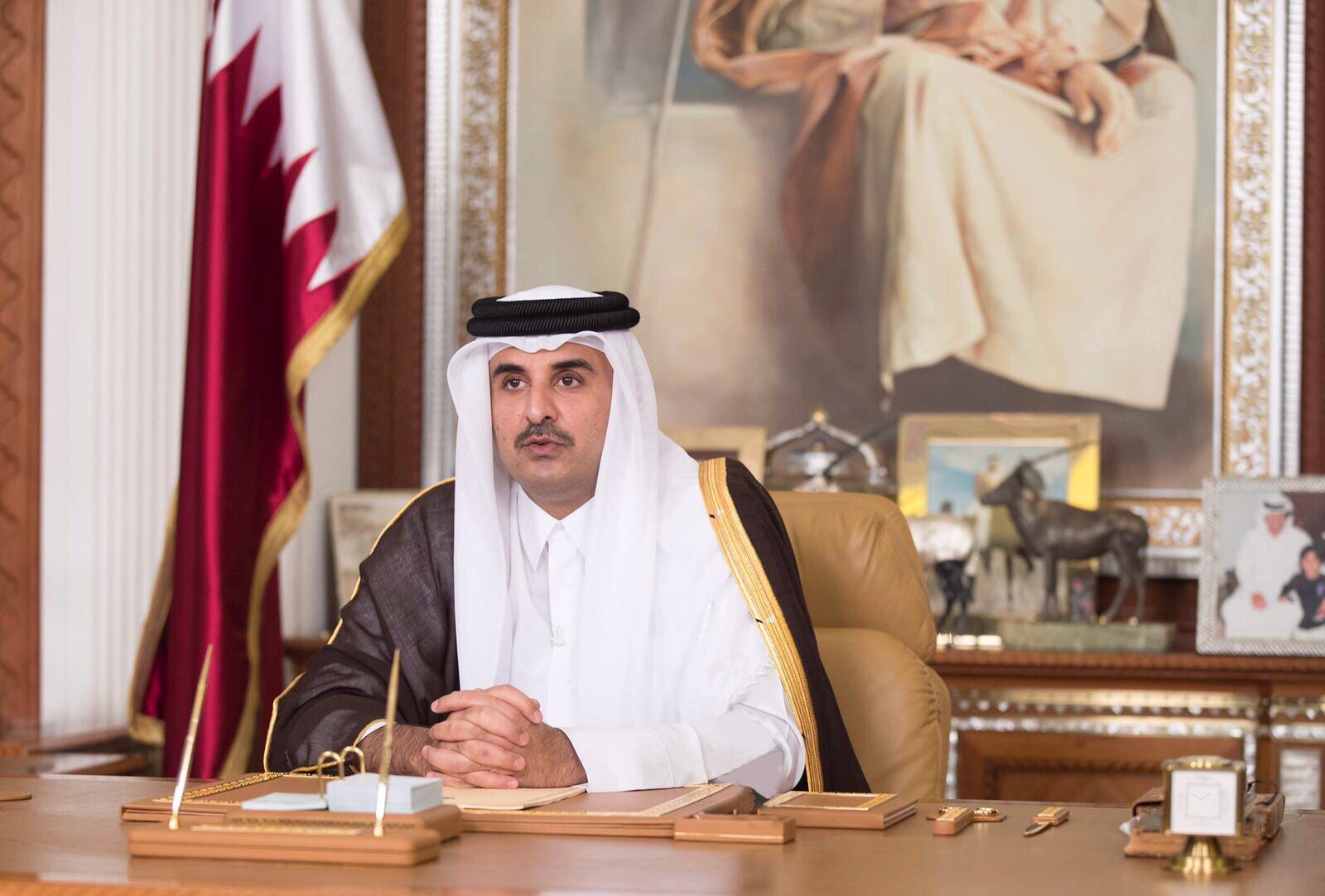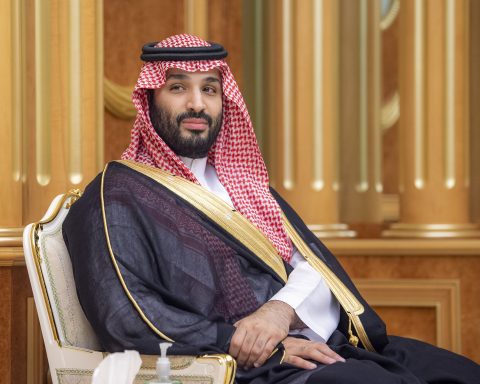Qatar’s position towards the Yemen conflict is mostly affected by the changes in the relations between the members of the Gulf Cooperation Council (GCC). Before the eruption of the Yemen conflict, Qatar backed the GCC’s activities and its mediator role in 2012. During this period, Doha strictly advocated GCC-led initiatives to obstruct possible internal conflicts in Yemen. Following the capture of the capital by Houthi forces at the end of 2014, Qatar confirmed the Riyad-Abu Dhabi-led military operation and lent unconditional military and political support to this operation. Despite Doha’s dedicated position to the GCC’s Yemen approach, a major crack has surfaced between several GCC members and Qatar.
Qatar’s fluctuating role in Yemen and the recent situation
Saudi Arabia allied with the United Arab Emirates (UAE), which has separatist goals in Yemen and considers Hadi’s government’s ally, the Islah movement, a terrorist organization, rather than Qatar, which had obvious common purposes in Yemen. The growing alliance between the UAE and Saudi Arabia has had negative implications for both Qatar’s regional activism and its GCC-inspired Yemeni position. In the wake of the most serious crisis within the GCC as a result of the Saudi Arabian and UAE-led 2017 siege on Qatar, relations between blockading countries and Qatar further deteriorated, and Qatar was simply dismissed from the Yemeni coalition. Subsequent efforts by blockading countries to isolate Qatar regionally and weaken the al-Thani regime domestically have disrupted Doha’s possible initiatives to alleviate Yemen’s complicated problems. Therefore, after the deterioration of relations with Riyad, Qatar took a more neutral position in Yemen by restoring ties with Houthi militias and other actors, except for the UAE-backed Southern Transitional Council (STC), which is a separatist Southern actor in Yemen and has certain military-political power in this region. In this way, Doha occasionally criticized the humanitarian violations of Saudi Arabia-led operations in Yemen and repaired its relations with Iran.
On the other hand, the disagreements between Riyad and Abu Dhabi resurfaced and Riyad was exposed to critical challenges following Abu Dhabi’s withdrawal from Yemen and its rapprochement with Tehran. Because of Abu Dhabi’s rapid tilt towards Tehran in the wake of Iranian aggression in the Gulf region which threatened Abu Dhabi’s basic objective of becoming the regional energy-finance center, Riyad was forced to assume all the military-political burdens to confront both Iran and its allies in Yemen. In other words, Saudi Arabia aligned with the UAE’s staunch anti-Qatar preferences and seemed to pay a big price by sidelining and alienating Qatar from regional issues, including specifically Yemen. But, after the UAE’s rapprochement with Riyad’s traditional rival, namely Iran and its military drawdown in Yemen, Riyad seemed to realize its strategic miscalculation and to modify its regional relations by sending warm messages to the Qatar government, which subsequently culminated in the normalization process between Riyad and Doha at the GCC-led al-Ula summit in January 2021.
Not only was there a rift between Saudi Arabia and the UAE, but there were also increasing criticisms by western capitals especially following the election of Joe Biden as US President. The Riyad government faced further isolation and serious military-political losses in the Yemen crisis. These developments urged the Saudi regime to even initiate a dialogue with its long-standing rival, Tehran. In this dialogue process, Qatar was also a key actor, as Doha had already had warm relations with Tehran and was very enthusiastic about playing such a facilitator role between these two states. Overall, considering the Iranian-Saudi rapprochement, with the normalization process inside the GCC members and Qatar’s positive relations with Iran, this country can again play an active role in the Yemen field and realize its long-established foreign policy objectives in Yemen.
Qatar’s potential contributions to the resolution of the Yemen crisis
Currently, it can be stated that the regional-global environment facilitates the possible efforts for the settlement or, at least, alleviation of Yemen’s heavy economic-political crisis. In this context, Qatar, which already seems to have effective links with the Yemeni local actors and their regional backers, can actively engage in this process. Therefore, to find out the possible contributions of Qatar’s active role in Yemen, the leading pillars of its Yemen policy should be captured. Traditionally, Qatar’s leading foreign policy dimension is to mediate between the conflicting parties and to bring relative stability to these countries. This traditional diplomacy was generally followed by the Doha administration, and specifically, since the 2000s, Qatar has contacted all domestic actors to play a facilitator role in Yemen. In this context, it is one of the first actors that established several contacts with the rising Houthi power previously, namely during the 2000s. These pre-established relations enabled Qatar to intensify its mediator role during the 2000s, between the Yemen government and Iran-backed Houthi forces. This brief overview indicates the first aspect of Qatar’s Yemen policy, which is the mediation between the parties.
The second aspect of Qatar’s foreign policy is to provide humanitarian assistance to war-torn countries where massive humanitarian tragedies prevail, and horrific scenarios take place. As it is known, the Yemeni people are suffering from the most tragic and ever-seen humanitarian crisis, which further complicates the issues and disrupts the socio-economic relations in this country. Therefore, Qatar can play a critical role in recovering the humanitarian tragedy in Yemen via its stronger economic advantages if, surely, it is involved in the diplomatic efforts to resolve this conflict. The current normalization process between member countries of the GCC and several GCC countries and Iran can facilitate Qatar’s active efforts in the Yemen field. Therefore, local actors backed by different regional actors involving Houthi militias, Yemeni government forces, and the STC permit Qatar to use the critical ports or other necessary transportation systems. Qatar would be eager to provide the necessary assistance to this country.
Thirdly, Qatar is one of the leading countries to back the national unity and territorial integrity in Yemen. When considering the UAE’s subversive and separatist policies with the STC and the activities of Iran’s backed Houthi militias in the most northern part of Yemen, it can be claimed that Qatar is siding with the local-regional actors which still stick to the empowerment of Yemen’s unity. Additionally, Qatar is claimed to have significant ties with the Islah movement, which is the Yemeni-based Ikhwan group. This group is the most important political-social organization and backs Abdurrabu Mansur Hadi’s government, which has tribal power both in the Northern and the Southern regions. Qatar’s relations with both the Islah movement and the Hadi government show the common objectives of the Riyadh and Doha governments. Therefore, these two countries can also work together to empower the status of the centrality of Hadi’s government and the territorial integrity of Yemen. Considering Qatar’s foreign policy objectives in Yemen and the new regional-global environment, Qatar’s re-involvement in the Yemen crisis as facilitator and mediator, with its effective contributions to the alleviation of Yemen’s severe political-economic problems, can again be possible.













